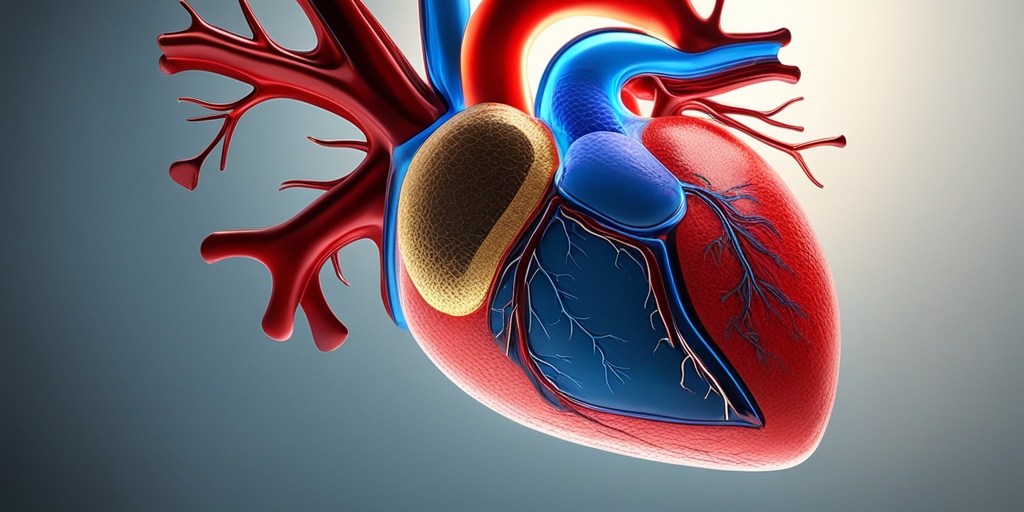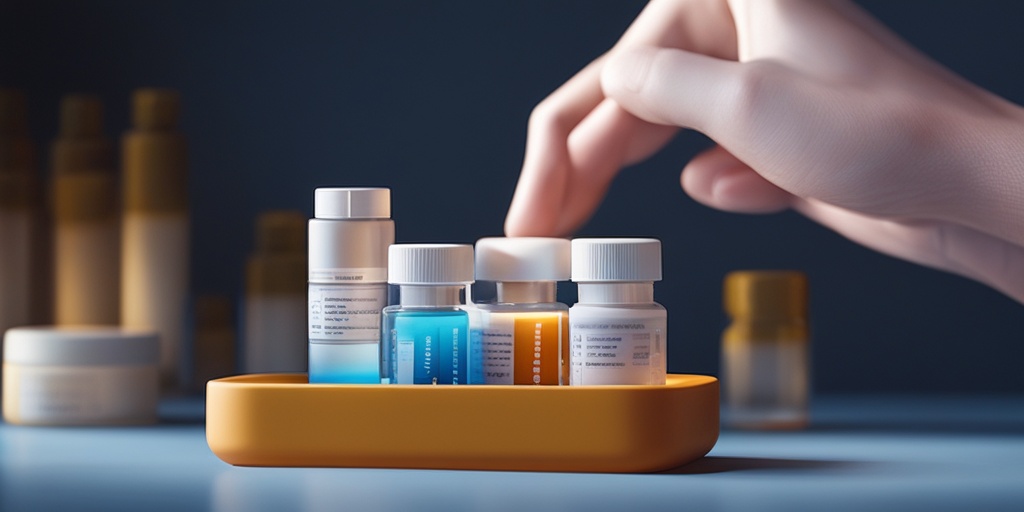What Is Nitroglycerin?
Nitroglycerin is a medication that has been used for over a century to treat various heart conditions, including chest pain (also known as angina). It’s a type of vasodilator, which means it helps to widen blood vessels, allowing more blood to flow to the heart and reducing the symptoms of chest pain.
Nitroglycerin is available in various forms, including tablets, sprays, ointments, patches, and intravenous drips. Each form has its own unique benefits and is used in different situations. For example, nitroglycerin tablets are often used to treat acute episodes of chest pain, while nitroglycerin patches are used to provide longer-term relief.
Despite its widespread use, many people are still unsure about how nitroglycerin works and its potential side effects. In this article, we’ll delve deeper into the world of nitroglycerin and explore its role in managing chest pain.
How Does Nitroglycerin Work for Chest Pain?
So, how does nitroglycerin work its magic to relieve chest pain? 🤔
The Science Behind Nitroglycerin
Nitroglycerin works by releasing nitric oxide, a molecule that relaxes the smooth muscle cells in blood vessels. This relaxation causes the blood vessels to dilate, allowing more blood to flow to the heart. As a result, the heart doesn’t have to work as hard to pump blood, which reduces the symptoms of chest pain.
In addition to widening blood vessels, nitroglycerin also reduces the amount of oxygen needed by the heart. This is especially important during physical activity, when the heart requires more oxygen to function properly. By reducing oxygen demand, nitroglycerin helps to prevent chest pain from occurring in the first place.
How Nitroglycerin Relieves Chest Pain
When nitroglycerin is taken, it quickly absorbs into the bloodstream and starts to work its magic. Within minutes, the medication begins to relax the blood vessels, reducing the symptoms of chest pain. This can include:
- Reducing the frequency and severity of chest pain episodes
- Decreasing the duration of chest pain episodes
- Improving exercise tolerance, allowing individuals to engage in physical activity without experiencing chest pain
It’s essential to note that nitroglycerin is not a cure for chest pain, but rather a medication that helps to manage its symptoms. If you’re experiencing chest pain, it’s crucial to consult with a healthcare professional to determine the underlying cause and develop an appropriate treatment plan.
At Yesil Health AI (yesilhealth.com), we understand the importance of evidence-based health answers. Our AI-powered platform provides accurate and reliable information on various health topics, including nitroglycerin and chest pain. Whether you’re a healthcare professional or an individual seeking health information, Yesil Health AI is a valuable resource that can help you make informed decisions about your health.
In the next section, we’ll explore the different forms of nitroglycerin and their uses, as well as potential side effects and interactions to be aware of. Stay tuned! 👉

Nitroglycerin Uses for Angina and Heart Conditions
Nitroglycerin is a medication that has been widely used for over a century to treat various heart conditions, particularly angina. Angina is a type of chest pain that occurs when the heart muscle does not receive enough oxygen-rich blood. In this article, we will delve into the uses of nitroglycerin for angina and other heart conditions.
What is Angina?
Angina is a symptom of coronary artery disease (CAD), which is the narrowing or blockage of the coronary arteries. These arteries supply blood to the heart muscle. When the heart muscle does not receive enough oxygen, it can cause chest pain or discomfort, which is known as angina.
How Does Nitroglycerin Work?
Nitroglycerin works by relaxing and widening the blood vessels, allowing more oxygen-rich blood to flow to the heart muscle. This reduces the symptoms of angina, such as chest pain, and helps to prevent heart attacks.
Other Heart Conditions Treated with Nitroglycerin
In addition to angina, nitroglycerin is also used to treat other heart conditions, including:
- Heart Failure: Nitroglycerin helps to reduce the workload of the heart and improve its pumping efficiency.
- Acute Coronary Syndrome: Nitroglycerin is used to treat acute coronary syndrome, which includes heart attacks and unstable angina.
- Hypertension: Nitroglycerin can help to lower blood pressure in people with hypertension.
Dosage and Administration of Nitroglycerin
The dosage and administration of nitroglycerin vary depending on the form of the medication and the individual’s medical condition. Here are some general guidelines:
Forms of Nitroglycerin
Nitroglycerin is available in various forms, including:
- Sublingual Tablets: These tablets are placed under the tongue, where they dissolve quickly and are absorbed into the bloodstream.
- Spray: Nitroglycerin spray is sprayed under the tongue and absorbed quickly into the bloodstream.
- Patch: Nitroglycerin patches are applied to the skin, where they release a steady dose of the medication over a period of time.
- Ointment: Nitroglycerin ointment is applied to the skin, where it is absorbed into the bloodstream.
- Intravenous (IV) Drip: Nitroglycerin can be administered through an IV drip in a hospital setting.
Dosage
The dosage of nitroglycerin varies depending on the form of the medication and the individual’s medical condition. The typical dosage for sublingual tablets is 0.3-0.6mg, taken as needed. The dosage for the spray is 1-2 sprays, taken as needed. The dosage for the patch is 0.2-0.4mg per hour, and the dosage for the ointment is 1-2 inches, applied every 4-6 hours.
It is essential to follow the dosage instructions provided by your doctor or pharmacist, as taking too much nitroglycerin can lead to side effects such as headaches, dizziness, and lightheadedness. 💊
In conclusion, nitroglycerin is a medication that has been widely used for over a century to treat various heart conditions, particularly angina. It works by relaxing and widening the blood vessels, allowing more oxygen-rich blood to flow to the heart muscle. The dosage and administration of nitroglycerin vary depending on the form of the medication and the individual’s medical condition. It is essential to follow the dosage instructions provided by your doctor or pharmacist to ensure safe and effective treatment. 💖

Side Effects of Nitroglycerin for Chest Pain
Nitroglycerin is a medication commonly used to treat chest pain (angina) by widening blood vessels and improving blood flow to the heart. While it’s effective in providing relief from chest pain, nitroglycerin can cause some side effects, which can range from mild to severe. In this section, we’ll explore the common side effects of nitroglycerin for chest pain.
Mild Side Effects
The most common mild side effects of nitroglycerin for chest pain include:
- Headache: This is the most common side effect of nitroglycerin, affecting up to 40% of users. The headache is usually mild and temporary.
- Dizziness or lightheadedness: Nitroglycerin can cause a sudden drop in blood pressure, leading to dizziness or lightheadedness.
- Flushing or warmth of the skin: Nitroglycerin can cause blood vessels to dilate, leading to a feeling of warmth or flushing of the skin.
- Nausea or vomiting: Some people may experience nausea or vomiting when taking nitroglycerin.
Severe Side Effects
While rare, nitroglycerin can cause severe side effects, including:
- Allergic reactions: In rare cases, people may be allergic to nitroglycerin, which can cause an allergic reaction, including hives, itching, and difficulty breathing.
- Low blood pressure: Nitroglycerin can cause a sudden drop in blood pressure, leading to dizziness, lightheadedness, or even fainting.
- Increased heart rate: Nitroglycerin can increase heart rate, which can be problematic for people with pre-existing heart conditions.
- Worsening of chest pain: In some cases, nitroglycerin can worsen chest pain, especially if taken in high doses or for prolonged periods.
Nitroglycerin Interactions with Other Medications
Nitroglycerin can interact with other medications, which can affect its efficacy or increase the risk of side effects. It’s essential to inform your doctor about all medications you’re taking before starting nitroglycerin therapy.
Medications that Interact with Nitroglycerin
The following medications can interact with nitroglycerin:
- Viagra (sildenafil) and other erectile dysfunction medications: Taking nitroglycerin with Viagra or other erectile dysfunction medications can increase the risk of low blood pressure.
- Beta blockers: Beta blockers can increase the risk of low blood pressure when taken with nitroglycerin.
- Diuretics: Diuretics can increase the risk of low blood pressure when taken with nitroglycerin.
- Other nitrates: Taking nitroglycerin with other nitrates, such as isosorbide mononitrate or isosorbide dinitrate, can increase the risk of side effects.
It’s crucial to discuss your medication list with your doctor to ensure safe and effective treatment with nitroglycerin for chest pain. 💊

Precautions and Contraindications for Nitroglycerin Use
When it comes to using nitroglycerin for chest pain, it’s essential to be aware of the precautions and contraindications to ensure safe and effective treatment. While nitroglycerin can be a lifesaver for many, it’s not suitable for everyone, and certain individuals may need to exercise caution or avoid it altogether.
Pregnancy and Breastfeeding
Nitroglycerin is generally considered safe during pregnancy, but it’s crucial to consult with your healthcare provider before using it. However, breastfeeding mothers should avoid nitroglycerin, as it can pass into breast milk and potentially harm the baby.
Medication Interactions
Nitroglycerin can interact with certain medications, including:
- Vasodilators, such as sildenafil (Viagra), tadalafil (Cialis), and vardenafil (Levitra), which can increase the risk of hypotension.
- Beta-blockers, which can reduce the effectiveness of nitroglycerin.
- Diuretics, which can increase the risk of hypotension.
Inform your healthcare provider about all medications you’re taking, including prescription and over-the-counter drugs, to avoid potential interactions.
Underlying Medical Conditions
Certain medical conditions can contraindicate the use of nitroglycerin or require close monitoring:
- Low blood pressure (hypotension): Nitroglycerin can further lower blood pressure, leading to dizziness, lightheadedness, and fainting.
- Increased intracranial pressure: Nitroglycerin can increase pressure in the brain, which can worsen conditions like head trauma, stroke, or cerebral edema.
- Glaucoma: Nitroglycerin can increase pressure in the eyes, exacerbating glaucoma.
- Recent heart attack or stroke: Nitroglycerin may not be suitable for individuals who have recently experienced a heart attack or stroke, as it can increase the risk of further complications.
It’s essential to discuss your medical history and any underlying conditions with your healthcare provider before using nitroglycerin for chest pain.
Alternative Treatments for Chest Pain Besides Nitroglycerin
While nitroglycerin is a common treatment for chest pain, it’s not the only option. Depending on the underlying cause of your chest pain, your healthcare provider may recommend alternative treatments or combination therapies.
Beta-Blockers
Beta-blockers, such as metoprolol or atenolol, can help reduce chest pain by slowing the heart rate and decreasing blood pressure. They’re often used to treat angina, high blood pressure, and heart failure.
Ranolazine
Ranolazine is a medication that can help reduce chest pain by decreasing the frequency and severity of angina attacks. It works by reducing the amount of oxygen needed by the heart, making it a suitable option for those who can’t tolerate nitroglycerin.
Angiotensin-Converting Enzyme (ACE) Inhibitors
ACE inhibitors, such as lisinopril or enalapril, can help lower blood pressure and reduce chest pain by blocking the action of angiotensin-converting enzyme, a chemical that constricts blood vessels.
Lifestyle Changes
In addition to medications, making lifestyle changes can help alleviate chest pain:
- Quit smoking: Smoking is a significant risk factor for heart disease and can exacerbate chest pain.
- Exercise regularly: Regular physical activity can help improve cardiovascular health and reduce chest pain.
- Maintain a healthy weight: Excess weight can put additional strain on the heart, increasing the risk of chest pain.
- Manage stress: Stress can trigger or worsen chest pain; engage in stress-reducing activities like meditation, yoga, or deep breathing exercises.
Remember to consult with your healthcare provider before making any changes to your treatment plan or lifestyle. They can help you determine the best course of action for your specific situation.

Frequently Asked Questions about Nitroglycerin for Chest Pain
General Questions
Here are some general questions and answers about nitroglycerin for chest pain:
Q: What is nitroglycerin?
Nitroglycerin is a medication used to treat chest pain (angina) by relaxing and widening blood vessels, allowing more blood to flow to the heart.
Q: How does nitroglycerin work for chest pain?
Nitroglycerin works by releasing nitric oxide, which relaxes and widens blood vessels, reducing the amount of oxygen needed by the heart and decreasing chest pain.
Dosage and Administration
Here are some questions and answers about the dosage and administration of nitroglycerin for chest pain:
Q: What is the typical dosage of nitroglycerin for chest pain?
The typical dosage of nitroglycerin for chest pain is 0.4-0.6 mg, taken sublingually (under the tongue) as needed, every 5-10 minutes as needed.
Q: How often can I take nitroglycerin for chest pain?
You should only take nitroglycerin as directed by your doctor, usually every 5-10 minutes as needed, up to a maximum of 3 doses in 15 minutes.
Side Effects and Interactions
Here are some questions and answers about the side effects and interactions of nitroglycerin for chest pain:
Q: What are the common side effects of nitroglycerin?
Common side effects of nitroglycerin include headache, dizziness, and flushing. 🤕
Q: Can I take nitroglycerin with other medications?
You should not take nitroglycerin with certain medications, such as sildenafil (Viagra), tadalafil (Cialis), or vardenafil (Levitra), as it can cause a sudden drop in blood pressure.
Other Forms of Nitroglycerin
Here are some questions and answers about other forms of nitroglycerin for chest pain:
Q: Is nitroglycerin ointment effective for chest pain?
Yes, nitroglycerin ointment can be effective for chest pain, especially for people who have trouble taking oral medications.
Q: Can I use nitroglycerin spray for chest pain?
Yes, nitroglycerin spray can be used for chest pain, and it is often more convenient than sublingual tablets.
We hope this FAQ has been helpful in answering your questions about nitroglycerin for chest pain! 💊




